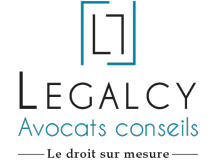Action of the creditor against the offending third party seized, in the absence of a declaration of debt at the collective proceeding of the debtor
Collective proceedings
Source: Supreme Court, Commercial Ch., 8 Sept 2015, n°14-15.831
In application of the articles L211-3, R211-4 and 5 related to the Code of the execution of the Civil Proceedings, the third party seized must declare to the creditor the extent of his obligations towards the debtor and provide to the bailiff the information provided in the article L211-3 related to the Code of the execution of the Civil Proceedings.
Failing to do so, he can be condemned, from the creditor's request, to pay the sums due to the latter, and even to pay damages and interests in case of a gross negligence or a false declaration.
In the present case, the debtor was put into receivership on 10th March 2009 and a recovery plan was decided on 9th March 2010.
In execution of an order dated 17th September 2009, which condemned the debtor to pay him a retainer, the creditor had a procedure of attachment made on 21st April 2011, by Mr Y..., notary (the third party seized).
On 12th July 2011, the court pronounced the resolution of a recovery plan of the debtor and opened a bankruptcy procedure.
On 18th January 2012, the creditor issued a writ to the third party seized for the payment of damages and interest for a false declaration on the basis of the article R211-5, paragraph 2 of the Code of the execution of the Civil Proceedings. On these grounds, he was condemned to pay the sum of €9000 for damages and interests.
The latter made an appeal against the decision rendered by the Court of Appeal, on the grounds that only the debts that aroused after the opening of a collective procedure for the progress of the proceedings, or the period of observation, or in return of a service provided to the debtor during this period, are not subject to the obligation of a declaration to the judicial representative and to the interdiction of payment and enforcement procedures.
In only noticing that the debt, which the creditor blamed the third party seized for its loss, had aroused after the opening of the collective procedure, to then deduct that it did not have to be declared to the judicial representative and was not subject to the interdiction of payment and enforcement procedures, without checking if this debt had aroused for the progress of the procedure or the period of observation or in return of a service provided to the debtor during this said period, the Court of Appeal would have deprived its decision of a legal base in regards with the articles 31 of the Civil Procedure Code and L622-17, L622-21 and L622-24 of the Commercial Code.
For the Supreme Court, the decision must be confirmed. It considers that a debt, which was not declared to the debtor's liability, is not extinguished but cannot be opposed to the collective procedure, therefore the absence of declaration of debt, in the recovery of which the creditor had a procedure of attachment made before the opening judgement of his debtor, does not deprive this creditorfrom his interest to act against the third party seized, on the basis of the article R211-5, paragraph 2 of the Code of the execution of the Civil Proceedings.
However, the Supreme Court dismissed the decision of the Court of Appeal on the grounds of the articles 1382 of the Civil Code and R211-5 of the Code of the execution of the Civil Proceedings.
The court, which had granted damages and interests to the creditor, as compensation for the loss of the possibility to have further enforcement measures, did not outline, as she was invited to, which other enforcement measures could have been done by the creditor and which chances he would have got to succeed.
Historique
-
Law applicable to a surety-bond loan: the provisions of the Civil Code and the Consumption Code do not constitute mandatory rules
Publié le : 22/10/2015 22 octobre oct. 10 201520152015 / OctobreCivil Law / Commercial Law Source: Supreme Court, 1st Civil Ch. 16th Sept 2015, n°14-10.373 JurisData n° 2015-020553 On April 19th 2006, an Italian ban...
-
A cheque not dated given as a guarantee of a loan of money is valid
Publié le : 22/10/2015 22 octobre oct. 10 201520152015 / OctobreCivil Law Source: Supreme Court, Commercial Ch., 22nd Sept 2015, n°14-17.901 JurisData n° 2015-021015 As a guarantee of a loan of €500,000.00, the debt...
-
Action of the creditor against the offending third party seized, in the absence of a declaration of debt at the collective proceeding of the debtor
Publié le : 22/10/2015 22 octobre oct. 10 201520152015 / OctobreCollective proceedings Source: Supreme Court, Commercial Ch., 8 Sept 2015, n°14-15.831 In application of the articles L211-3, R211-4 and 5 related to t...
-
The employer cannot lay off an employee who was protected, for a motive already rejected by the work inspection
Publié le : 22/10/2015 22 octobre oct. 10 201520152015 / OctobreLabour Law Source: Supreme Court, Social Ch., 23 Sept 2015, n°14-10.648 According to a decision dated 23rd September 2015, an employee, who was previou...
-
The travelling times domicile-first client and last client-domicile of itinerant employees must be considered as an effective working time
Publié le : 22/10/2015 22 octobre oct. 10 201520152015 / OctobreLabour Law Source: European Court of Justice, 10 Sept 2015, n° C-266/14 In an important decision, the European Court of Justice (ECJ) has considered th...
-
Adoption by the Senate of the Project of Law for the modernisation of the French Health System (consecration of the right to oblivion)
Publié le : 22/10/2015 22 octobre oct. 10 201520152015 / OctobreThe Senate has adopted on October 6th 2015 a Project of Law establishing the right to oblivion for the persons who were previously affected by cancer, which...
